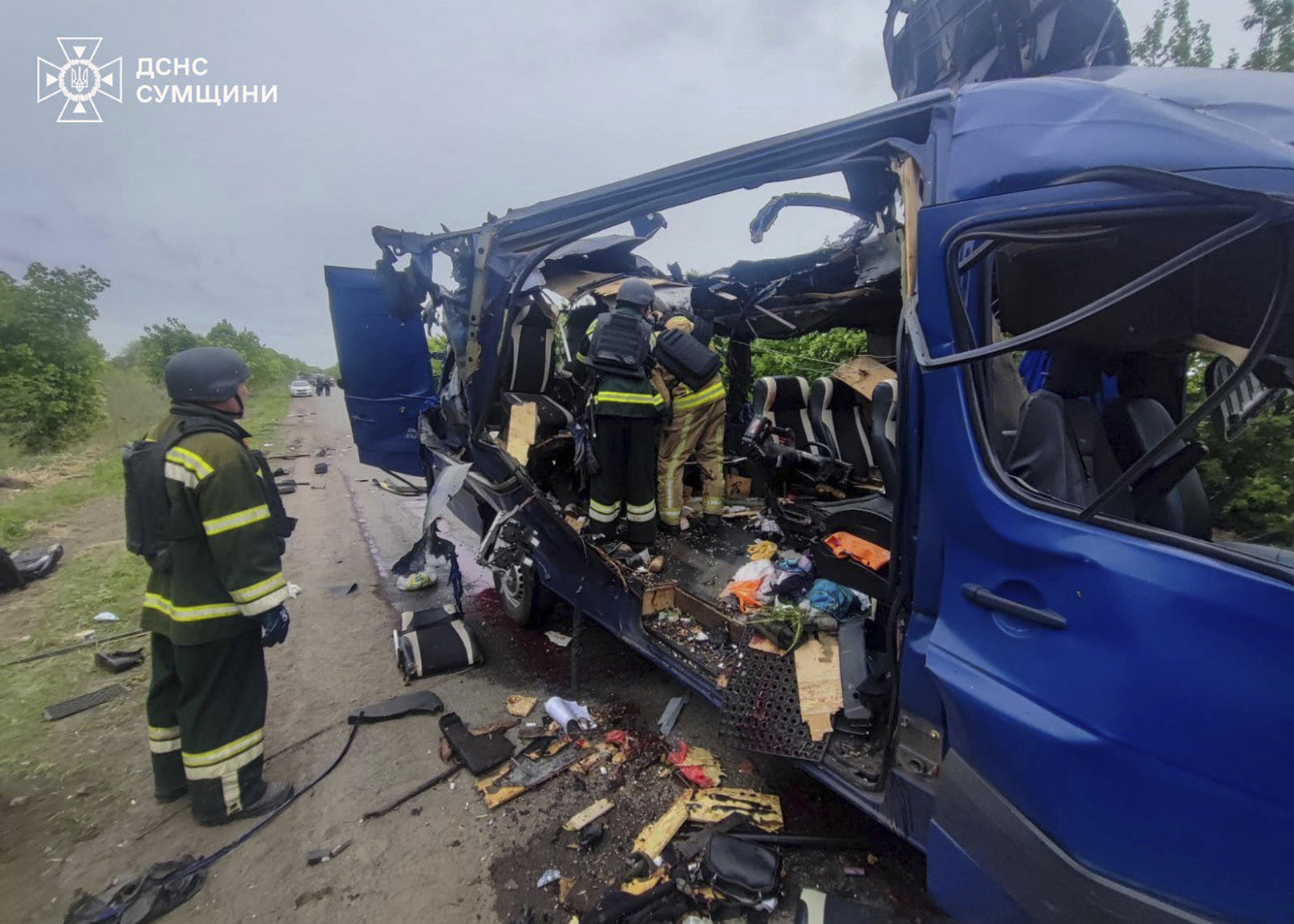Russia continues its killing of Ukrainian civilians even as peace talks in Istanbul are ongoing. On Saturday morning, a large drone struck a minibus transporting civilians in the border region of Sumy, resulting in nine civilians dead and seven injured.
Volodymyr Zelensky reported that among the deceased were a family consisting of a father, mother, and daughter. "It was a deliberate murder of civilians. [..] We need to pressure Russia to stop the killings," the Ukrainian president said.
The Sumy region has been the target of intense bombings against civilian targets for months, constituting a blatant war crime, since Ukrainian forces were expelled in March from the neighboring Russian region of Kursk. During the Istanbul talks, the Russian delegation threatened yesterday to "conquer" Sumy and Kharkiv in the coming months if Ukraine does not accept their conditions, which involve a de facto capitulation of the Kiev army, despite still being far from being completely defeated on the battlefield.
The attack occurred shortly after the meeting in which Kiev and Moscow agreed to an exchange of 1,000 prisoners from each side, but it ended without a ceasefire, which was "the priority" for Ukraine and its allies.
The succession of such attacks represents a common pattern. A few weeks ago, an Iskander missile, also with cluster munitions, landed in a playground in the city of Kryvyi Rih, Volodymyr Zelensky's hometown, killing nine children. A week earlier, the Russians attacked the center of Kharkiv in the same way... In 2025 alone, there have been 25 ballistic missile bombardments in Kyiv, Zaporizhia, Dnipro, and other cities in eastern Ukraine.
These bombers are consistent with a dual strategy of the Kremlin, well-oiled throughout the invasion: on the one hand, it is a way to punish the population and break their morale when things get stuck on the battlefield. For every frustrated Russian advance or resolved with thousands of casualties on the front, as is the case, for example, in the Pokrovsk area, which costs an average of 27 Russians dead per square kilometer advanced, there is usually a long-distance attack against Ukrainian civilians. On the other hand, Vladimir Putin tends to act this way in response to appeasing maneuvers by his interlocutors. When he perceives weakness, he always shows his greatest aggressiveness.
For example, after the appeasing phone call between German Chancellor Olaf Scholz and Russian President Vladimir Putin on November 15, 2024, Russia launched a massive attack against Ukraine. During the night of November 16 to 17, Russian forces fired approximately 120 missiles and 90 drones at various Ukrainian regions, including cruise, ballistic, and aeroballistic missiles such as Zircon, Iskander, and Kinzhal. This attack resulted in the death of at least seven civilians and left 19 injured.
The Kremlin stated yesterday that the continuation of the talks will only be possible once the prisoner exchange has taken place. Additionally, it assessed that a meeting between Putin and Zelensky could only occur if certain agreements are reached, without specifying their conditions.
